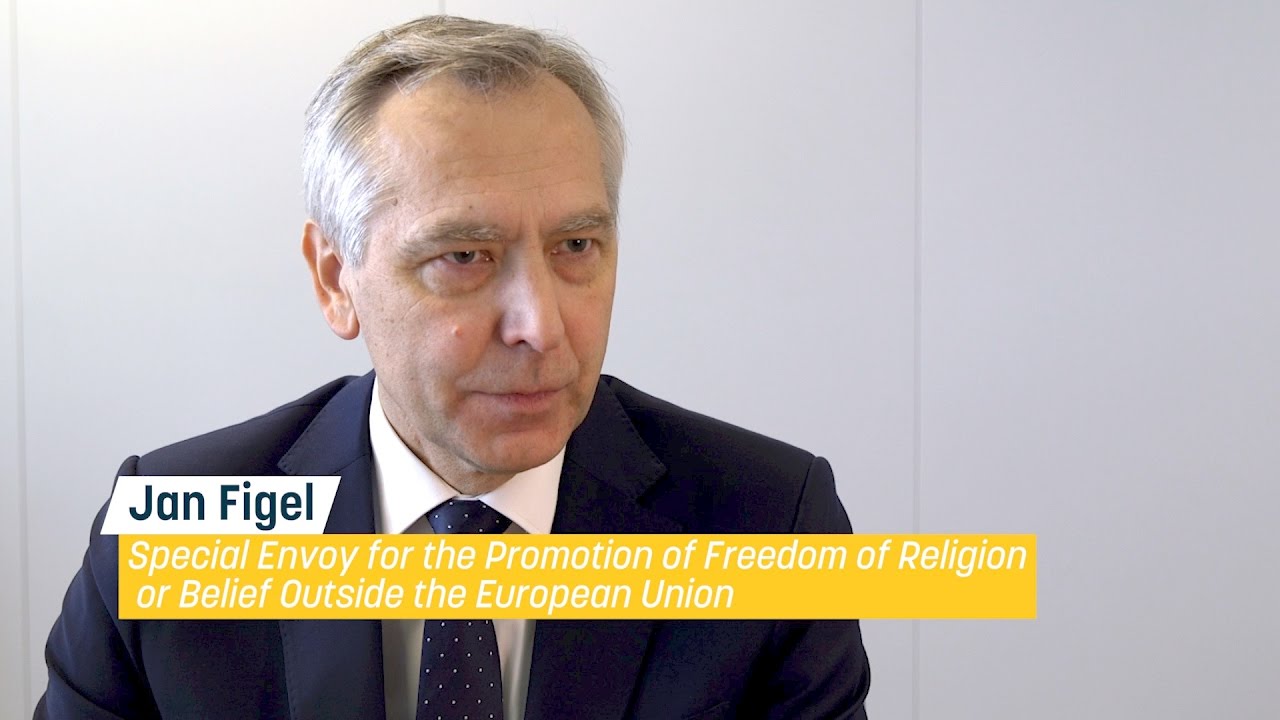Tag: freedom
-
¿Llegará al mundo el impactante mensaje de Asia Bibi?
Un mensaje desde lo más profundo del corazón que contrasta con la superficialidad con que vivimos en otras partes del mundo. La pakistaní, ya plenamente libre y reunida con su familia, vive en Canadá como refugiada Hace unos meses pudimos narrar con verdadera alegría el fin del cautiverio de Asia Bibi, la mujer pakistaní de
-
European envoy on freedom of religion or belief: Sudanese partners open to dialogue on religious diversity
Jan Figel, Special Envoy for the Promotion of Freedom of Religion or Belief outside the European Union, visited Sudan from the March 14 to 17, 2017 KHARTOUM, Sudan, March 20, 2017/APO/ — Jan Figel, Special Envoy for the Promotion of Freedom of Religion or Belief outside the European Union, visited Sudan from the March 14
-
EU envoy on religious freedom: ‘Indifference, ignorance and fear’ are terror’s greatest allies
To mark his first anniversary in the role as the EU’s inaugural Special Envoy for the Freedom of Religion or Belief Outside the EU, EURACTIV.com interviewed Ján Figeľ about the headscarf ban, Islamist terrorism and growing up Catholic in a communist state. Ján Figeľ will also be speaking at EURACTIV’s Freedom of religion and belief
-
-
What US President-elect D. Trump can do for Syria and Aleppo
(CNN) The US President-elect walks onto the world stage facing a question: Will this century of genocides end or continue? Donald Trump comes to power amid what has been called „the complete meltdown of humanity“ in Syria, with US Ambassador to the United Nations Samantha Power demanding of UN member states Syria, Iran, and Russia:
-
For EU’s religious freedom envoy, Middle East is key arena
Brussels, Belgium, Oct 27, 2016 / 12:08 am (CNA/EWTN News).- The genocide of Yazidis and Christians in the Middle East and the refugee crisis should be a priority for Europe, the EU special envoy for religious freedom has said. Jan Figel told CNA that even though “there many other places where religious freedom is liquidated,
-
EU and Freedom of Religion or Belief: A new Momentum
Ladies and Gentlemen, In the midst of current multilayer crisis – we see compounded migration crisis, security crisis with crisis of our values, the dialogue is the space where we can find an answer. It requires not uniformity, but a unity that can harmonise even divergent views. We should recall that the roots of the
-
A Welcome Surprise: The First EU Special Envoy on Freedom of Religion or Belief Outside the EU
On Friday 6 May, whilst Brussels was enjoying a bank holiday, European Commission president Jean-Claude Juncker announced the appointment of ex-Commissioner Jan Figel as the first EU Special Envoy on Freedom of Religion or Belief (FoRB) outside the EU. Why has this appointment been made? This appointment followed a little noticed paragraph in the European


